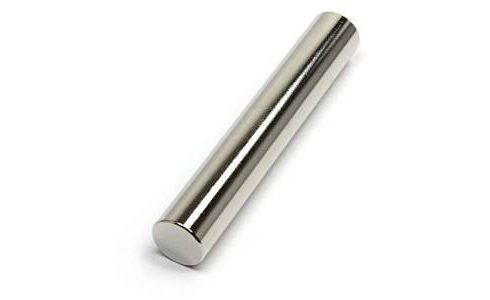Aerospace Bearings Steel
Introduction to Steel for Aerospace Bearings
Aerospace bearings are specifically designed for flight systems, requiring operation at high speeds (up to 60,000 rpm) and across a wide temperature range (from -54°C to 500°C). As a result, these bearings must exhibit excellent reliability. Material selection, structural design, and manufacturing methods play crucial roles in ensuring optimal performance under high-temperature and high-speed conditions. Common materials for aerospace bearings include AMS6491 (M50) steel, AMS6444 (chrome carbon steel), AMS5930, stainless steel, and titanium carbide-coated steel.
General bearing steel materials such as AISI 52100, AISI 4320, and AISI 9310 can meet the requirements of working time and speed, with corrosion resistance demands favoring AISI 440. Heat-resistant steels widely used in aerospace bearings include M50, M50NiL, 32CrMoV13, and Pyrowear 675.
Steel for Aerospace Bearings
-
AMS 6191:
AMS 6191 or M50 is a tool steel widely used in the aerospace industry since the 1950s. It exhibits high hardness and compressive strength at both low and high temperatures, with excellent thermal hardness and rolling fatigue performance. Due to the presence of molybdenum carbide, it offers unique properties of high temperature resistance and hardness. After hardening, M50 steel reaches a hardness of about 60 HRC and can withstand working temperatures up to 316°C, maintaining a hardness of around 55 HRC at 500°C. These characteristics, combined with outstanding fatigue resistance, make it an ideal choice for high-precision, high-load bearing applications, including gas turbines and semiconductor components. The material’s wear resistance is enhanced by the presence of original carbides, and a double heat treatment can further increase hardness by nitriding for 40-70 hours at 500°C, reaching a hardness of 1000-1250 HV.
-
AMS 6481:
32CrMoV13 or AMS 6481 is a deep nitriding steel suitable for turbine engines, capable of high-speed operation at temperatures up to 345°C. The nitriding process in this steel occurs at lower temperatures during heat treatment, resulting in lower aging sensitivity and hardness, minimizing deformation during processing. Quenching and tempering treatments can also reduce shape changes, as they maintain the base material’s hardness.
-
AMS 5930:
Pyrowear 675 or AMS 5930 is a carburized martensitic stainless steel used in the aerospace industry since the 1990s, meeting requirements for corrosion resistance, toughness, and a usage temperature of up to 400°C. With low carbon content, high core toughness, corrosion resistance from chromium, secondary hardening and anti-pitting properties from molybdenum, and improved wear resistance from vanadium, this material avoids the formation of ferrite due to the presence of nickel and cobalt. Carburization for this material requires a low temperature and extended time to prevent the formation of coarse carbides. Surface annealing and normalizing processes can eliminate carbide formation and excessive carbon diffusion, achieving a surface hardness of 62 HRC.
-
AMS 6278:
AMS 6278 or M50 NiL steel is a low-carbon high-alloy steel with high strength, toughness, and good wear and corrosion resistance at high speeds and temperatures. M50NiL is a surface-hardened steel with excellent mechanical properties, including strength, toughness, and fatigue performance. It is widely used in the aerospace industry for special transmission components.
-
AISI 52100:
52100 chrome steel is the most common bearing steel, offering excellent mechanical properties at a low cost and widespread availability, dominating usage among all traditional bearings. With low chromium content, it provides basic corrosion resistance. Depending on the properties of the bearing cage material, 52100 steel can withstand temperatures up to 120°C, with a maximum usage temperature of 150°C. However, its hardness drops sharply, significantly reducing its lifespan.
-
AISI 316:
316 is a commonly used austenitic stainless steel with low hardness but excellent corrosion resistance, making it suitable for marine applications due to outstanding salt spray test performance. In comparison, Cronidur30 offers similar corrosion resistance without sacrificing hardness or fatigue life. It’s worth noting that 316 stainless steel is typically non-magnetic, an advantage that allows 316 stainless steel bearings to be used at temperatures up to 500°C, disregarding the cage. Due to the non-hardenable nature of 316 material, it can only be used for low-load, low-speed semi-precision applications.
In addition to the mentioned steels, various materials such as 440C, BG42, and even ceramic materials are used for aerospace bearings based on different usage conditions, aiming to meet specific functional requirements. Dual hardening treatment is one of the primary heat treatment directions for bearing steel materials.

